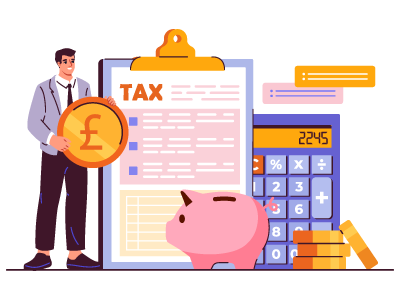Staircasing Stamp Duty
Stamp Duty Land Tax is paid by UK homebuyers on the purchase of their property, whether that's as a whole or in shares. Shared Ownership still attracts stamp duty costs, but it works differently.
Do I have to pay stamp duty on staircasing?
This depends on the amount you paid when you first purchased the property. There are 2 ways you can pay for your shared ownership stamp duty land tax (SDLT):
- Pay a one-off sum on the full value of the property - this is called a Market Value Election; or
- Pay any stamp duty due in stages
If you opted to pay the full amount, you no longer have to pay for staircasing stamp duty. If you chose to pay off in stages, you pay whatever is due on the first transaction, and then you only pay the rest once you staircase to more than 80%.
What is 80% staircasing restriction?
When paying it in stages, staircasing stamp duty is only triggered once the share you buy gives you ownership of over 80% of the property. You then need to file an SDLT return and pay any money due.
How much stamp duty do you pay when you staircase?
You'll need the following information to help you calculate the stamp duty you need to pay when you staircase:
- Total value of the property when you originally purchased
- What share did you buy?
- Current Market Value of the property (in full)?
- How much are you staircasing to?
Once you have this information, you can then work out what stamp duty you are liable for.
The standard stamp duty rates apply to your staircasing process. Use our staircasing stamp duty calculator below to find out how much you'll pay on your share.
| Property Price | Standard Rate of Stamp Duty | Additional Home Rate (updated post Oct 2024 budget) | Non UK Resident Rate |
| £0 - £125,000 | 0% | 5% | 2% |
| £125,001 - £250,000 | 2% | 5% | 2% |
| £250,001 - £925,000 | 5% | 10% | 2% |
| £925,001 - £1.5 million | 10% | 15% | 2% |
| Over £1.5 million | 12% | 17% | 2% |
Stamp Duty Net Present Value
With shared ownership properties, you make mortgage repayments on the share you own and pay rent on the share you don't own. If you're not a first time buyer and have a high annual rent, you might have to pay net present value (NPV) stamp duty.
In that case, the rental payments for the year will be multiplied by the lease term (i.e. 99 years), and if that figure is greater than £250,000, you are liable to pay 1% stamp duty on net present value.
When you first purchase the property, if the the net present value (NPV) of the rent payments is applicable, you will pay stamp duty for your share and 1% stamp duty for the NPV. You can read more about this calculation here - Stamp Duty for Shared Ownership
If you're a shared ownership first time buyer, you don't pay any stamp duty up to £300,000 as long as the property is worth £500,000 or less. Opting to pay stamp duty as a whole on the initial transaction might give you first time buyer relief and also reduce any future staircasing stamp duty to £0.
For example, if you purchase a 50% share of a property worth £400,000, you will pay £200,000. If the housing association calculates the net present value of the rent to be £150,000, you will only be liable to pay stamp duty on the £200,000. As this is under the £250,000 threshold, you won't pay anything.
You only pay NPV on the initial purchase, so it's not applicable for future staircasing stamp duty.
The shared ownership net present formula is complex and we don't provide tax advice. We can, however, offer a free tax consultation with a specialist.
Can you staircase to 100% shared ownership?
You can staircase to 100% shared ownership, but be mindful that this can trigger stamp duty costs. If you chose to pay stamp duty in shares, you might be exempt until you reach a certain threshold.
Share Owned | Purchased | Amount Paid for Share | Property Value |
|---|---|---|---|
Share Owned 25% | Purchased 25% | Amount Paid for Share £72,500 | Property Value £290,000 |
Share Owned 75% | Purchased 50% | Amount Paid for Share £170,000 | Property Value £340,000 |
Share Owned 100% | Purchased 25% | Amount Paid for Share £85,000 | Property Value £340,000 |
In the example above, the property value has increased, so the price you pay for your share will also increase. Provided nothing was paid on initial purchase and you've opted to pay it off in stages, staircasing stamp duty is only payable on your last transaction, on the full value of the property.
Andrew started his career in 2000 working within conveyancing solicitor firms and grew hands-on knowledge of a wide variety of conveyancing challenges and solutions. After helping in excess of 50,000 clients in his career, he uses all this experience within his article writing for SAM, mainstream media and his self published book How to Buy a House Without Killing Anyone.
Caragh is an excellent writer and copy editor of books, news articles and editorials. She has written extensively for SAM for a variety of conveyancing, survey, property law and mortgage-related articles.









